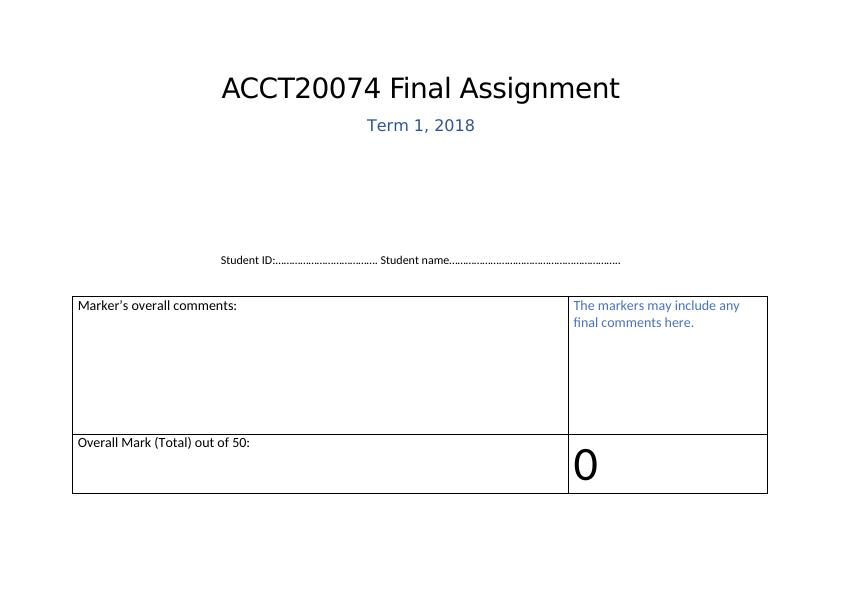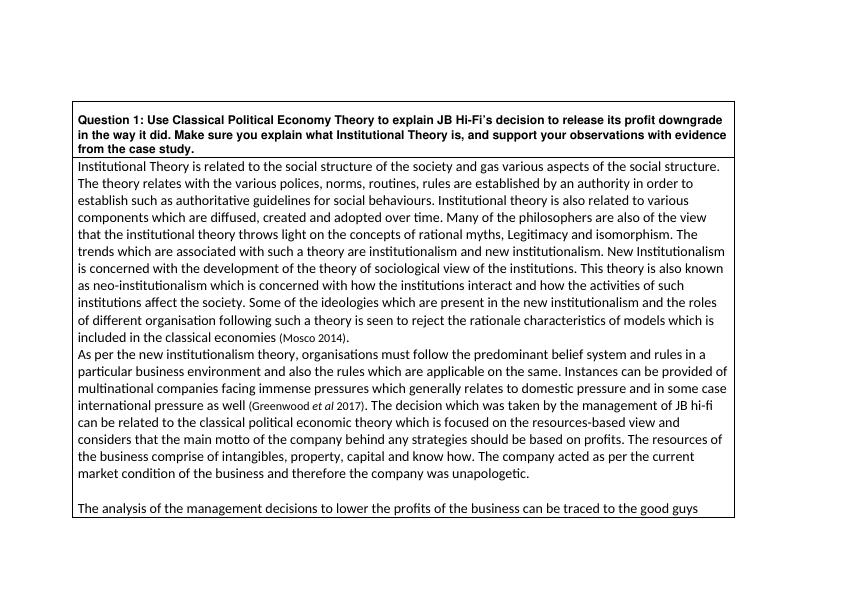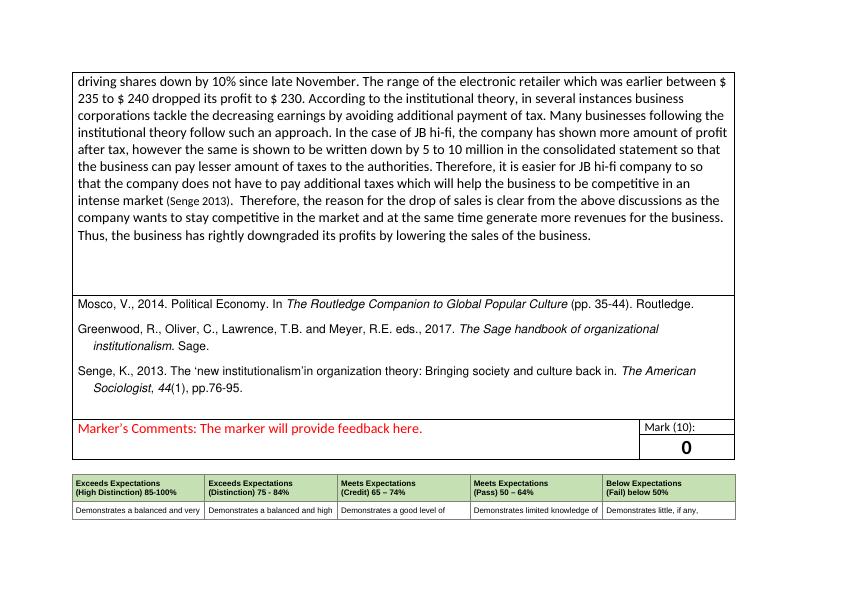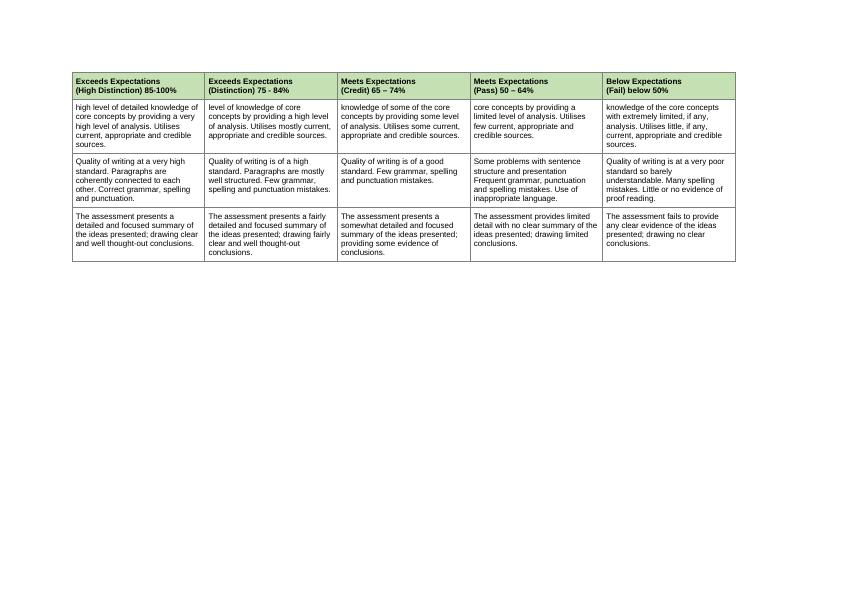Explaining JB Hi-Fi's decision to release its profit downgrade and reporting decisions using political economy and stakeholder theories
Use Classical Political Economy Theory to explain JB Hi-Fi’s decision to release its profit downgrade in the way it did.
14 Pages5377 Words212 Views
Added on 2023-06-11
About This Document
This article discusses the use of political economy and stakeholder theories to explain JB Hi-Fi's decision to release its profit downgrade and reporting decisions. It also explores the relationship between current share prices and future earnings announcements. The article provides evidence from the case study to support the observations made.
Explaining JB Hi-Fi's decision to release its profit downgrade and reporting decisions using political economy and stakeholder theories
Use Classical Political Economy Theory to explain JB Hi-Fi’s decision to release its profit downgrade in the way it did.
Added on 2023-06-11
ShareRelated Documents
End of preview
Want to access all the pages? Upload your documents or become a member.
Explaining JB Hi-Fi's Reporting Decisions and Profit Downgrade using Institutional and Managerial Branch of Stakeholder Theory
|16
|5991
|301
Using Political Economy and Managerial Stakeholder Theories to Analyze JB Hi-Fi's Reporting Decisions
|11
|3761
|213
Using Classical Political Economy Theory and Managerial Branch of Stakeholder Theory to Analyze JB Hi-Fi's Reporting Decisions
|16
|5660
|364
Using Classical Political Economy and Managerial Stakeholder Theory to Analyze JB Hi-Fi's Reporting Decisions
|26
|6421
|73
Explaining JB Hi-Fi's reporting decisions using Managerial branch of Stakeholder Theory
|16
|5962
|467
Using Classical Political Economy Theory and Managerial Branch of Stakeholder Theory to Explain JB Hi-Fi's Reporting Decisions
|16
|6087
|63




